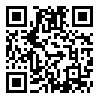Volume 17, Issue 3 (7-2025)
jorar 2025, 17(3): 184-192 |
Back to browse issues page
Download citation:
BibTeX | RIS | EndNote | Medlars | ProCite | Reference Manager | RefWorks
Send citation to:



BibTeX | RIS | EndNote | Medlars | ProCite | Reference Manager | RefWorks
Send citation to:
Zariei A, Raisi Dezaki L, Pourkhaghan Shahrezaei Z. Achieving Good Governance in the IFRC Emphasizing the Role of Integrity in Rescue & Relief. jorar 2025; 17 (3) :184-192
URL: http://jorar.ir/article-1-1038-en.html
URL: http://jorar.ir/article-1-1038-en.html
Professor, Department of Int. Law, Isf.C., Islamic Azad University, Isfahan, Iran
Abstract: (879 Views)
INTRODUCTION: The International Federation of Red Cross and Red Crescent Societies (IFRC) is an international non-governmental organization that provides a wide range of humanitarian services to its stakeholders. In an environment marked by growing complexities and challenges in humanitarian crises, commitment to good governance is crucial for effective response strategies. The aim of this study is to examine the extent to which good governance has been realized in the IFRC's operational and functional domains by analyzing available data.
METHODS: This qualitative study examines the extent to which good governance has been achieved in the operational and functional areas of the IFRC using discourse analysis, literature review, and studying documents through examining historical documents, the IFRC's regulations, and the reports of the internal audit office over the past 50 years.
FINDINGS: According to the findings, adherence to good governance principles enhances the legitimacy and effectiveness of IFRC operations. The development of ethical standards, transparency and accountability in resource management, and employee ethics and conduct are key factors in maintaining public trust and combating corruption. In the meantime, with an emphasis on impartiality, adherence to humanitarian principles, and attracting global support, the principle of integrity plays a central role, especially in rescue and relief operations.
CONCLUSION: This study emphasizes the importance of IFRC’s fundamental principles such as humanity, impartiality, and independence as the foundations of decision-making in crises. As humanitarian needs evolve, strengthening these principles is essential to improve performance and preserve the dignity of those affected, also there is a need to focus on developing frameworks to better integrate these principles into operational strategies.
METHODS: This qualitative study examines the extent to which good governance has been achieved in the operational and functional areas of the IFRC using discourse analysis, literature review, and studying documents through examining historical documents, the IFRC's regulations, and the reports of the internal audit office over the past 50 years.
FINDINGS: According to the findings, adherence to good governance principles enhances the legitimacy and effectiveness of IFRC operations. The development of ethical standards, transparency and accountability in resource management, and employee ethics and conduct are key factors in maintaining public trust and combating corruption. In the meantime, with an emphasis on impartiality, adherence to humanitarian principles, and attracting global support, the principle of integrity plays a central role, especially in rescue and relief operations.
CONCLUSION: This study emphasizes the importance of IFRC’s fundamental principles such as humanity, impartiality, and independence as the foundations of decision-making in crises. As humanitarian needs evolve, strengthening these principles is essential to improve performance and preserve the dignity of those affected, also there is a need to focus on developing frameworks to better integrate these principles into operational strategies.
Keywords: Good governance, Integrity, International Disaster Response Law, IFRC, implementation challenges
Article Type: Research article |
Subject:
IFRC, RCRC, Movment of Red Cross & Red Crescent etc.
References
1. Chi, P. C., Bulage, P., Ostby, G. Equity in aid allocation and distribution: A qualitative study of key stakeholders in Northern Uganda. PloS one, 2019; 14(12): e0226612. [DOI:10.1371/journal.pone.0226612.]
2. Reindorp, N., Wiles, P. Humanitarian coordination: Lessons from recent field experience. London: Overseas Development Institute. 2001: 9
3. Shipley T. U4 Anti-Corruption Helpdesk: Managing corruption challenges in humanitarian settings. Transparency International: the Global Coalition against Corruption. [Internet] [cited 2021], Available from: https://knowledgehub.transparency.org/assets/uploads/helpdesk/Managing-corruption-challenges-in-humanitarian-settings-2019_PR.pdf
4. Akhtar P., Marr N. E., Garnevska E.V. Coordination in humanitarian relief chains: chain coordinators. Journal of Humanitarian Logistics and Supply Chain Management, 2012; 2(1):85-103. [DOI:10.1108/20426741211226019]
5. International Federation of Red Cross and Red Crescent Societies (IFRC). Policy on the protection of integrity of national societies and organs of the international federation. [Internet] [cited 2018 October]. Available from: https://www.ifrc.org/sites/default/files/integrity_policy_2019_final-1.pdf
6. Kshetri, N. Blockchain technology for improving transparency and citizen’s trust. In Advances in Information and Communication: Proceedings of the 2021 Future of Information and Communication Conference (FICC), Springer International Publishing. 2021;1:716-735 [DOI:10.1007/978-3-030-73100-7_52]
7. United Nations High Commissioner for Refugees (UNHCR). 2022. Building trust in humanitarian action: A global perspective. Available from: https://www.redcross.org.au/globalassets/cms/global-migration-lab/gml-migpers_buildtrust_english.pdf
8. UNICEF. Community participation in humanitarian action: A key to effectiveness. New York: UNICEF. [Internet] [cited 2021], Available from:https://www.corecommitments.unicef.org/kp/community-engagement-in-humanitarian-action-(chat)-toolkit.%3A-updated-ersion2021
9. WHO. Collaboration with local and international organizations. [Internet] [cited May 11, 2020], Available from: https://apps.who.int/gb/ebwha/pdf_files/WHA75/A75_39-en.pdf
10. Miliband D, Gurumurthy R. Improving Humanitarian Aid: how to make relief more efficient and effective. Foreign Affairs. 2015; 94(4):118-29.
11. United Nations Office for Disaster Risk Reduction. (UNISDR). Making Cities Resilient Report 2019 : [Internet] [cited 2019 April], Available from: https://www.unisdr.org/campaign/resilientcities/assets/toolkit/documents/UNDRR_Making%20Cities%20Resilient%20Report%202019_April2019.pdf
12. Bost, M. Project management lessons learned: a continuous process improvement framework. Auerbach Publications. 2018 [DOI:10.1201/9780429490361]
13. UN Women: Handbook on Gender Mainstreaming for Gender Equality Results. [Internet] [cited 2021], Available from: https://www.unwomen.org/sites/default/files/2022-02/Handbook-on-gender-mainstreaming-for-gender-equality-results-en.pdf
14. Human Rights Watch. [Internet] [cited 2020], Available from: https://www.hrw.org/world-report/2020
15. International Federation of Red Cross and Red Crescent Societies (IFRC). our-promise/do-good/report-concern. [Internet] [cited 2025], Available from: https://www.ifrc.org/our-promise/do-good/report-concern
16. Annual Report 2011-2012. [Internet] [cited 2012 September], Available from: https://alnap.hacdn.io/media/documents/ar2011-12.pdf
17. International Federation of Red Cross and Red Crescent Societies. Education Strategic Framework 2020-2030. [Internet] [cited 2022], Available from: https://www.ifrc.org/sites/default/files/2022-10/IFRC-Education-Strategic-Framework-2020-2030-EN.pdf
18. International Federation of Red Cross and Red Crescent Societies (IFRC). We need to do better: policy brief for enhancing laws and regulations to protect children in disasters-p9 [Internet] [cited 2018], Available from: https://disasterlaw.ifrc.org/sites/default/files/media/disasterlaw/2021-02/We-Need-To-Do-Better-Summary-En.pdf.
19. International disaster response law (IDRL) [Internet] [cited 2007], Available from: https://disasterlaw.ifrc.org/IDRL
| Rights and permissions | |
 |
This work is licensed under a Creative Commons Attribution-NonCommercial 4.0 International License. |








